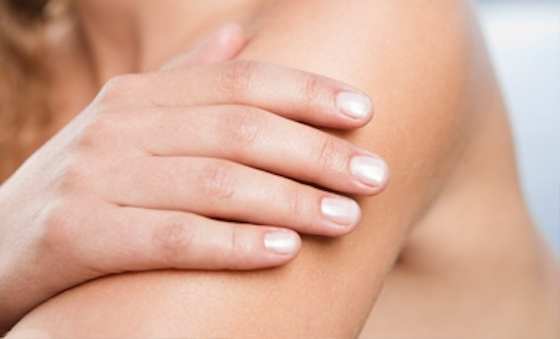- MENU
- HOME
- SEARCH
- WORLD
- MAIN
- AFRICA
- ASIA
- BALKANS
- EUROPE
- LATIN AMERICA
- MIDDLE EAST
- United Kingdom
- United States
- Argentina
- Australia
- Austria
- Benelux
- Brazil
- Canada
- China
- France
- Germany
- Greece
- Hungary
- India
- Indonesia
- Ireland
- Israel
- Italy
- Japan
- Korea
- Mexico
- New Zealand
- Pakistan
- Philippines
- Poland
- Russia
- South Africa
- Spain
- Taiwan
- Turkey
- USA
- BUSINESS
- WEALTH
- STOCKS
- TECH
- HEALTH
- LIFESTYLE
- ENTERTAINMENT
- SPORTS
- RSS
- iHaveNet.com: Health Ailments

by Aly Walansky
Are you doing all you can to protect yourself from wrinkles and skin cancer?
Most people like to enjoy a little sun. It warms us up, makes us feel cozy and relaxed, and some even say it gives us a healthy glow. But those benefits come with a serious tradeoff: skin cancer. It's the most common form of cancer in the U.S., and 90 percent of cases are caused by sun exposure.
You probably already know you should be wearing sunscreen, but you may be misusing it -- or not being as diligent as you should.
Here are some quick tips to keep in mind to protect yourself from wrinkles and skin cancer:
No, you aren't safe from skin cancer just because your skin is dark.
Anyone can get it.
Applying once isn't enough
Just last week, I was walking in the sun with sunscreen on and still got burnt. Make sure to reapply every two hours -- and more often if you are sweating or swimming.
You don't have to be sunbathing to get a burn
Working near a window, driving, or relaxing at an outdoor bar or café can get you burnt as well.
Use a 30+ SPF broad-spectrum sunscreen that bans UVA AND UVB rays.
Any product that is not broad spectrum, or that has an SPF under 15 must now carry a warning label stating that the product has not been shown to help prevent skin cancer or early skin aging.
Never go tanning
I don't care if it's your wedding. Indoor tanning beds are no better than frying in the sun.
Make routine skin exams a habit, just as you would for breast exams or any other self-check. The American Cancer Society recommends seeing a doctor for an annual head-to-toe skin exam and performing self-exams once a month to look for suspicious lesions or moles. Be sure to see your doctor if you notice a new spot or one that is changing in size, shape, or color -- the most important warning signs for melanoma.
And if you don't have a doctor or insurance, you can get a free screening.
The American Academy of Dermatology wants to help prevent the spread of skin cancer by offering free screenings at hospitals around the country. Use their search tool to find a free cancer screening or sign up for an e-alert to get notified when one becomes available in your area.
"5 Must-Follow Tips to Prevent Wrinkles and Skin Cancer"